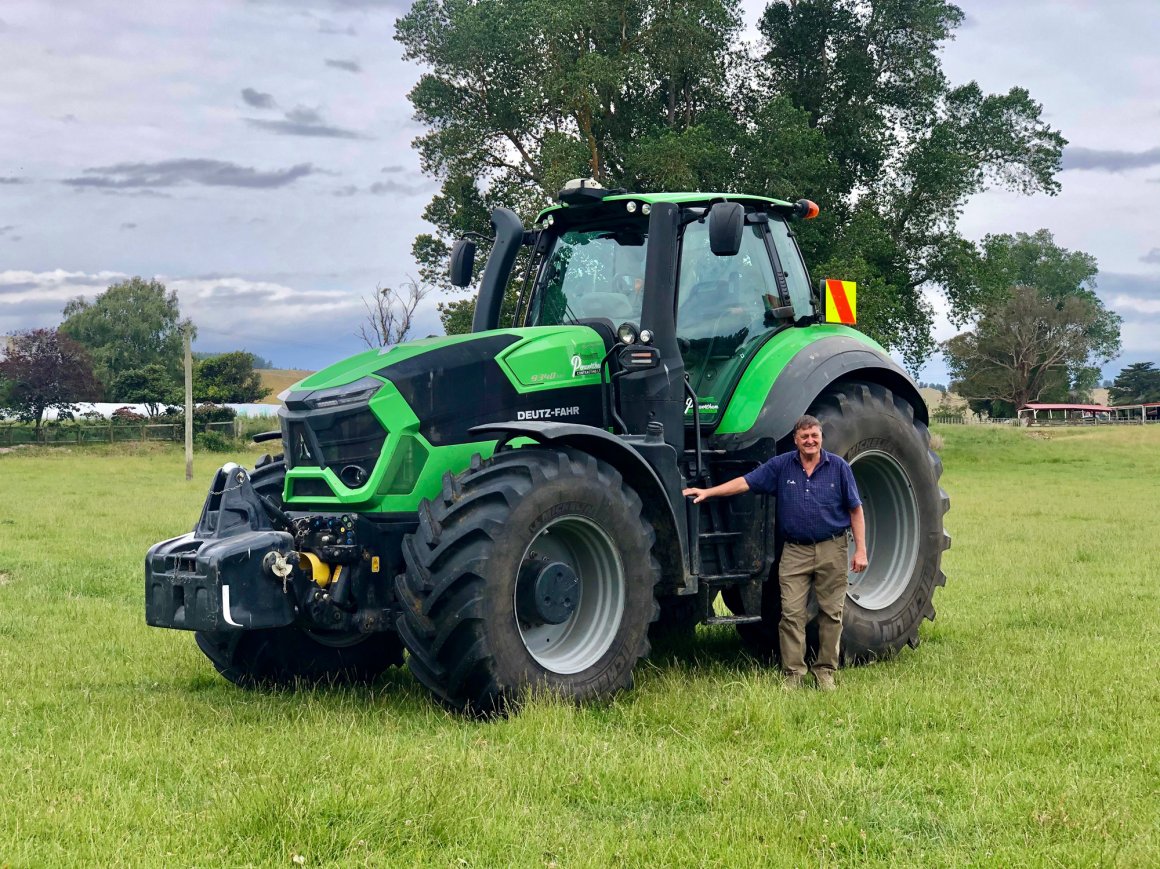
It wasn't many years ago that farmers would ask, 'Why do I need a GPS system?' Today the question is much more likely to be, 'Why would you bother buying a tractor that is not fitted with GPS?'
Farmers and contractors can easily see the major savings on inputs GPS brings, as well as a level of ease that they could only dream of a generation ago.
Deutz-Fahr became an early adopter of this technology when it formed an alliance with leading precision ag company Topcon.
Topcon products sold under the Agrosky banner have become a familiar sight in Deutz-Fahr 6, 7 and 9 Pro Series tractors sold by Power Farming in New Zealand. The models that feature Agrosky run from 130 hp to 34 hp, in both four-and six-cylinder configurations.
The can be specified with the 12-inch iMonitor 2 or iMonitor-3, the equivalent of the Topcon X-35. Both monitors offer intuitive, easy-to-use touchscreens that provide multiple layouts and keep track of the tractor's main functions. Given the many benefits of GPS and other precision farming applications, not least of 0 which are bout matching and auto-steering, it is interesting to talk to sometime who might be described as a reluctant early adopter.
The Horrocks family from Whanganui run a cropping and stock farm, but also provide cultivation and planting services on contract.
Andrew Horrocks admits to being of a "certain age" that got caught out by the new technology. He struggled but nonetheless, invested in GPS, largely to set A-B lines and match bouts when cultivating paddocks.
Although he struggled a bit to get his head around GPS a decade ago, today Andrew Horrocks cannot imagine working without it.
The latest Agrosky i-Monitor offers horizon Xtend, which allows you to project the screen onto a mobile device.
Fast forward a decade and Andrew now operates a high-spec Deutz-Fahr 9340 and wonders how he ever managed without GPS. "Back in the days before GPS we did 12-hour days on the tractor and came home physically shattered, usually with a headache. Today, we do the same hours, but we are more productive in the amount of work we achieve and the inputs we use. We actually come home feeling fresh and even have a smile for the wife," says Andrew.
Once you understand the symbols used throughout the system, Andrew says that there is much less intensive concentration because the tractor steers and turns itself. This means he can keep an eye on the machine for potential problems.
That ease of use extends to the data functions that allow users to select the farm, paddock, job and implement they are using. In the case of the implement, you can store a 'library' of machines with specific information such as operating width and preferred settings.
Andrew's list includes his discs, direct drill, power harrows and rippers. Each can be recalled at the touch of a button.
"Setting up is so simple. Once we have chosen the farm, paddock, job and implement, I make a single pass around the perimeter of the paddock, switch on the guidance system and make another three or four rounds. Then I can use A-B lines for the straight runs.
"The Auto-Steer function also recognises obstacles from previous passes, so it couldn't be much easier," Andrew says.
With his Agrosky GPS, Andrew Horrocks is much more productive and he uses inputs more efficiently.
"The fact is, if the GPS isn't working properly, we just don't start a job. We get on the phone for support from Power Farming. They can access the system remotely and get things fixed. Over the course of the day we make up any time we would have lost by operating without GPS."
Andrew runs a McCormick MTX 110 tractor that carries a Kverneland Optima HD precision planter with auto shut-off and section control and a Topcon X30/AGl-4 system.
"The GPS system is probably worth more than the old tractor, but with automated headland shut-off and section control, it makes planting absolutely brilliant, especially in poorly shaped paddocks."
He uses a correction signal from Omnistar and notes that, although a signal can be occasionally lost in hilly terrain or when passing under trees, it reconnects quickly, unlike some competitive systems used by his neighbours.
"The fact of the matter is we just wouldn't be without GPS," Andrew concludes.
Retrieved from Rural Contractor












